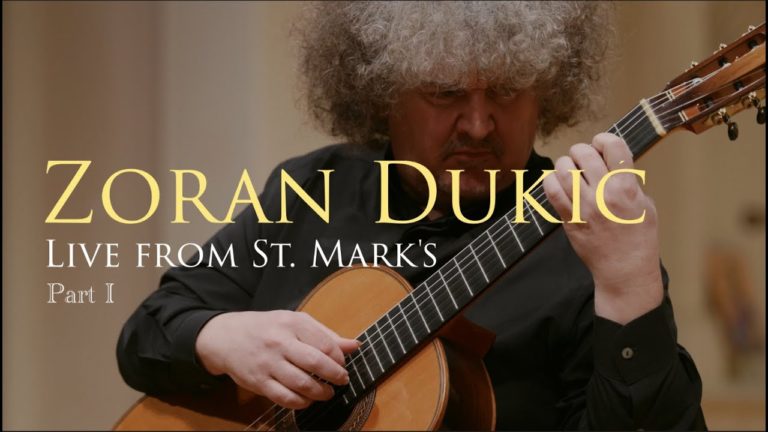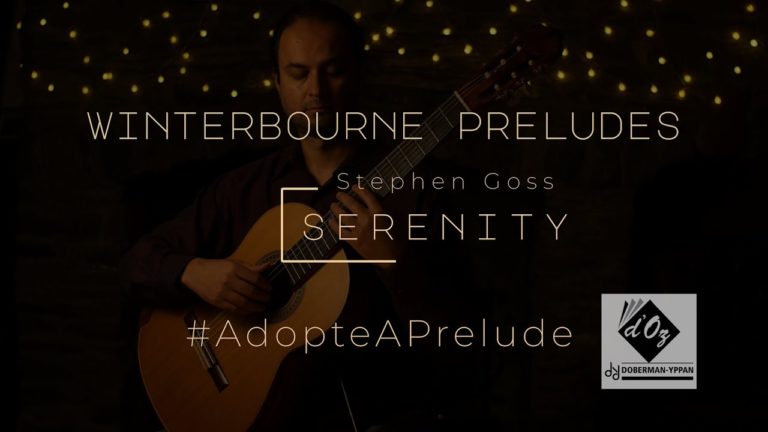Zoran Dukic performs Cinema Paradiso by Stephen Goss. This comes from via GuitarCoop and their YouTube Channel. Commissioned by GuitarCoop, ‘Cinema Paradiso’ is music about film. Each of the six short movements pays homage to a director or genre. Video direction by Emmanuel Sowicz and sound by John Taylor. Excellent performance by Dukic with a presentation of varied textures, articulations, and musical characters in each movement. Plus some cool video direction matching the films and genres represented in the work. I’ll quote the description via each YouTube video.
“In ‘Paris, Texas’, Goss evokes the unique atmosphere of Wim Wenders’s 1984 film, exploring the similitude between the vast open spaces of the Texan desert and the internal emptiness of solitude through loss. The music alludes to Ry Cooder’s haunting soundtrack.”
“This movement mickey-mouses a scene from Charlie Chaplin’s ‘Modern Times’ (1936). Here Chaplin’s character is working on a production line in a factory: the music shifts gear as the camera switches attention from one machine to another. Before long Chaplin can’t keep up with the conveyor belt and ends up being swallowed by a large machine. After racing out of control, the machine grinds to a halt – as it starts up again Chaplin is gently regurgitated and production can continue.”
“Noir is a homage to a whole genre. Crime jazz became the soundtrack of Film Noir from the 1950s onwards – a sleazy, seedy, smoke-filled room music of dark corners. Miles Davis’s score for ‘Asenseur pour l’échafaud’ (1958) and Duke Ellington’s ‘Anatomy of a Murder’ (1959) exemplify the style.”
“Lars von Trier’s ‘Dogville’ (2003) explores individual and societal decadence by interrogating the fragility of civilisation. Drawing on Kurt Weill and Bertolt Brecht’s ‘Rise and Fall of the City of Mahagonny’, the film watches a whole community destroy itself. ‘Mandalay’ distorts the musical style of Kurt Weill through the prism of von Trier’s nihilism.”
“In François Truffaut’s ‘Fahrenheit 451’ (1966) – set in a dystopian future – reading is banned, and all books are burned. 451 focusses on ‘the book people’, who live on the fringes of this society learning books by heart and teaching them to one another to keep the books alive. In keeping with this idea from the film, there is no written score for ‘451’. Performers have to be taught the piece by someone else, or learn it from a recording or video – the original score has been burned.”
“Tarantino is a short Tarantella – a dance to the death: not caused by the bite of a spider, but the needle of a heroin overdose. The music alludes to the world of Quentin Tarantino’s “Pulp Fiction” (1994) – violent, callous, insolent, breathtaking.”




